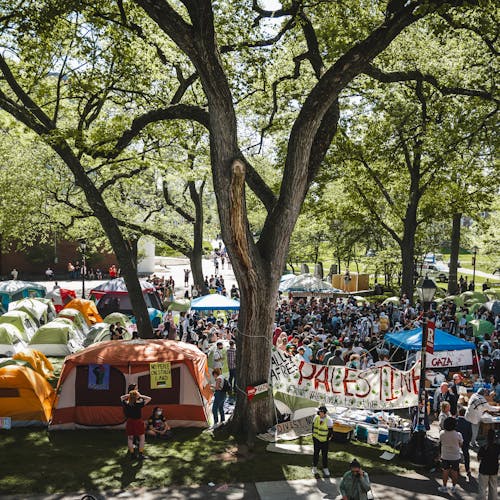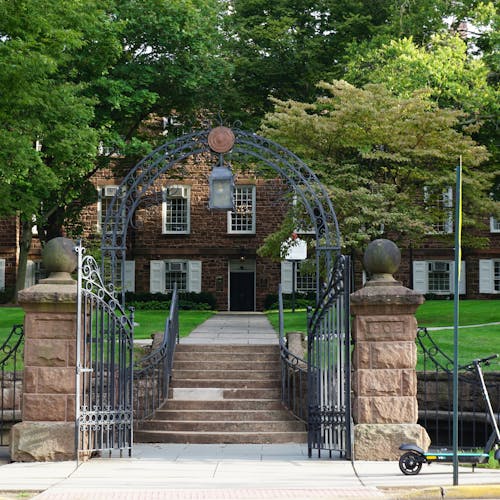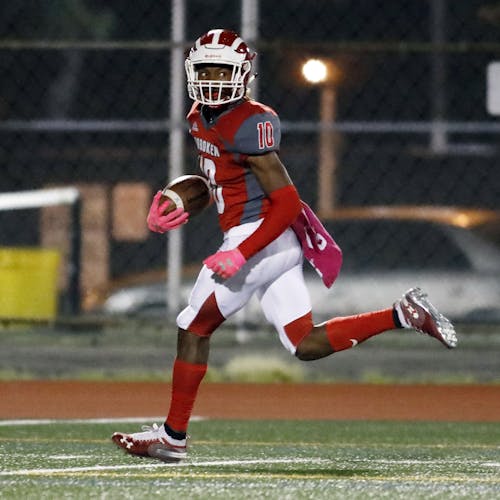U. professor receives Gifted Educator award

Partho Sengupta, a Henry Rutgers professor and Chief of the Division of Cardiology at Rutgers Robert Wood Johnson Medical School (RWJMS) and the Robert Wood Johnson University Hospital (RWJUH), was recently awarded the title of "Gifted Educator" from the American College of Cardiology.
The criteria for becoming a gifted educator include making significant contributions to the field of medicine, promoting innovative education and having an impact on those influenced by their teaching, according to the American College of Cardiology website.
Sengupta said that being named a gifted educator acknowledges his achievements and research and inspires him to mentor and learn from the next generation of leaders, he said.
"It felt like a milestone. It is an extremely prestigious award at a national forum, and it does not happen easily," he said. "I knew the difficulty in getting nominated and also the honor of receiving it."
While being a mentor, Sengupta said he values sharing ideas with younger minds and finds inspiration in working together to create resources and opportunities for others to develop the field.
He was initially recognized when he became the first to conduct a lecture using hologram technology, also known as holography, which resulted in him being awarded the Harvey Feigenbaum lectureship in 2013, he said.
Combining his research about the human heart and its functions with holography, he said he wanted to show how technology would help doctors better define diseases while leaving a lasting impression on his audience.
The presentation was well acknowledged and solidified his reputation as an innovator and educator, Sengupta said.
"My work has always been seen as something that is called out of the box, but sometimes it drives people in a critical direction," he said. "But despite some of the initial criticisms, ultimately to see it come to fruition and people accepting it makes it more fulfilling."
Sengupta said understanding how the human heart functions is challenging, which is why some professionals found his work uncomfortable.
By continuing to use holography with cutting-edge technologies like artificial intelligence in his research, Sengupta said it would help doctors more accurately treat complex disorders.
Being raised around a family of doctors and medicine made him want to become a cardiologist and physician at an early age, he said.
He said he understands the importance of balancing patient care with advancing the future of medical education because his parents were both academic cardiologists and physicians and later organized their own hospitals in India.
As a professor and cardiologist, he said his responsibilities encompass administrative duties at RWJMS and RWJUH, and include his participation in research and guidance in cardiology imaging combined with modern technology.
Sengupta said he has ambitions for a digital transformation of cardiology — his goal is to improve how professionals approach patients' heart problems while considering their other medical needs. He also hopes to collaborate with other professional sectors.
The changes would address critical challenges in cardiology and related careers while also fostering education, research and new leadership within the field, he said.
Sengupta said he hopes that one day the culture of clinical medicine becomes an environment where competition and collaboration are motivators in fostering inclusivity in clinical medicine.
"I want to bring the mantra that when you start enjoying what you do, the only way to do that is to create a state of inquiry where you're engaged and interested and feeling fulfilled as you discover the process," he said. "When you enjoy something, you never have burn out."



